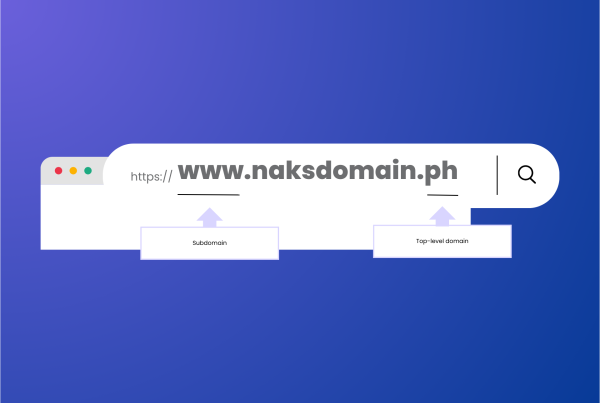Updated: 30 April 2024 • 10 minutes Read
It’s pointless to publish your homepage if it doesn’t appear in search results. Most users access homepages, blogs, and websites through search engines. Therefore, if your homepage doesn’t appear in search results, it’s as if it doesn’t exist.
In this article, we’ll explain why your homepage may not appear in search results and provide solutions to help you deal with it.
 How search engines register homepages
How search engines register homepages
We need to delve into their mechanism to understand how search engines register homepages and determine search rankings. It comprises three parts – ‘crawl’, ‘index’, and ‘ranking’. The search engine crawls web pages to collect them, indexes them, and finally ranks them to decide the search order of web pages.
A deep understanding of this mechanism is essential for dealing with the issue of your homepage not appearing in search results. It also helps in implementing effective SEO measures.
Let’s thoroughly comprehend how search engines work.
Crawl and find pages.
Search engines use bots called crawlers to find and analyse web pages. These crawlers follow links from pages that have already been compiled into a database. They collect files like HTML, text, CSS, images, JavaScript, PDF, etc., from web pages and convert them into data that search engines can easily process.
Finally, they register the results in a database. Without crawlers, important files on web pages would not be indexed in search engines. That’s why it’s essential to create a website that is easy to crawl if you want to register your homepage with search engines.
Register page with index.
A search index is a database that is held by a search engine. When a web page is indexed, all the words that appear on that page are registered in the search index. Based on this index information, the search engine outputs search results.
Google indexes a vast number of web pages, and this is possible because of a mechanism called the search index. Thanks to the search index, Google is able to provide the best search results for your search keywords.
The ranking determines display order.
Search engine rankings are determined by algorithms that consider various factors when ranking web pages. Google, for example, uses more than 200 ranking factors, which are not publicly disclosed, and updates its algorithm regularly.
To appear at the top of search rankings, you need to understand the purpose of the algorithm, which is to display web pages that best match the user’s search query. Therefore, creating high-quality content is the key to achieving high rankings.
Is your homepage is registered with search engines?
-
Check with Google Search Console
Google Search Console is a powerful tool that enables you to measure several essential metrics such as the number of homepage views, clicks, click-through rate, average ranking, and more. It is an indispensable tool for Search Engine Optimisation (SEO).
You can check whether your homepage is indexed by entering its URL in the search box at the top of Google Search Console. If your homepage is indexed, you will see a message saying “URL is registered with Google”. If it is not indexed, you will see a message saying “URL is not registered with Google”.
-
Search for “site:URL”
To check whether your homepage is indexed by Google, you can use the “site:URL” command. When you enter the URL of the web page in the URL section of “site:URL”, all pages indexed on that homepage will be displayed, showing you the approximate number of indexes.
Keep in mind that when you enter a directory, everything under the directory will be displayed, and if there are URL parameters, they may not be taken into account.
 Learn how to get your homepage to appear in search engines
Learn how to get your homepage to appear in search engines
We will explain why your homepage isn’t appearing in search engines and provide solutions to address this issue.
Let’s take action to ensure your homepage shows up on search engines.
After it was published
Search engines recognise homepages and web pages when they crawl them. But sometimes, even after publishing your homepage, the crawlers may not have indexed it yet. You can register your homepage with Google Search Console to ensure it is recognised. This is a shortcut that will help your homepage get indexed quickly.
Additionally, it’s a good idea to register your sitemap with Google Search Console as well to ensure that all your pages get indexed.
Using the noindex tag
If you don’t want your webpage or homepage to be found on search engines, you can use the noindex tag. It’s a tag that tells search engines not to index your page. You can use this tag for web pages that have little content or are still in development.
For instance, you could add a noindex tag to a homepage that is not yet complete and has no content. This ensures that it won’t appear on search engines. After publishing your website, make sure you check to see if you have removed the noindex tag that you set during development.
Robots.txt settings
“Robots.txt” is a mechanism that instructs search engine crawlers which URLs on your homepage they can access. For WordPress, the front part of the homepage can be accessed, but access to the administration screen under “/wp-admin/” is not allowed. The robots.txt settings can affect the behavior of the crawler. If the robots.txt settings are incorrect, the crawler may not be able to crawl your homepage. If you are having trouble registering your homepage, please review your robots.txt settings.
Google penalty
Violating Google’s guidelines can lead to penalties such as a drop in search ranking or your website being removed from search results. Penalties are imposed for low-quality content or unnatural links. Check for penalties on Google Search Console and resolve them promptly. Low search rankings may result in your website not appearing in search results. Improve your search rankings by implementing proper SEO measures.
If you want to improve your position in search results, you can use SEO techniques.
Keyword selection
Selecting the right keywords is crucial when creating content. When people use search engines, they type in questions or problems they need answers to, and these queries are turned into search keywords. Google then displays the content that best solves these queries at the top of the search results.
Survey of search needs
Search needs refer to the information that users are looking for when they search for a particular keyword. These users are usually searching for a solution to a problem or a question that they have. For instance, if someone searches for “I want to become a better cook”, their search need is how to improve their cooking skills. Every keyword has a corresponding search need.
Content that solves user problems
To rank high on search engines, it’s essential to create content that accurately addresses users’ search needs and solves their problems. This requires thorough investigation of users’ search queries and providing them with sufficient information and practical solutions.
One way to achieve this is by offering original information that complements the existing information users are seeking. This can help establish your website as a credible and authoritative source, which can ultimately improve your search engine rankings.
Internal links and related articles
Internal linking is a crucial aspect of SEO. Internal links are the links that connect different web pages within a website, such as breadcrumbs, related articles, and article introductions.
By properly passing internal links, not only do search engine crawlers get encouraged to visit, but it also increases the relevance between web pages, which can result in higher rankings from search engines. Additionally, related articles can make users visit other web pages, increasing the time they spend on the page. Therefore, it’s important to design appropriate internal links to improve the effectiveness of SEO.
Submit your sitemap to Google Search Console
A sitemap is a list of web pages on a website that is easy to understand. It is recommended to automatically generate a sitemap and register it with Google Search Console to make it easier for Google to discover your content.
If you are using WordPress to create a homepage or blog, an XML sitemap will be output by default and can be accessed at “http://domain name/sitemap.xml”. However, if you want a more detailed sitemap, you should consider installing a plugin as WordPress’s default sitemap is a simple version.
Insert keywords in titles and headings
Search engines analyse, index, and rank the text of web pages. Titles and headings are particularly important within that text. So it’s vital to include keywords in your titles and headings.
Additionally, it’s essential to divide your text into headings for each topic. This way, the headings alone provide an overview of the article. This helps you to properly inform search engines about your content.
Summary
It is important to understand why your website’s homepage is not showing up in search results. There are three mechanisms that search engines use to register homepages: crawling, indexing, and ranking. The crawler scans the homepage and indexes it as a search index. Then, the algorithm analyses the content and ranks it in the search results.
Some reasons why your homepage may not appear in search engines include: it has been recently published, the noindex tag is used, robots.txt settings are inappropriate, Google penalty, or the ranking is too low.
Once you understand the reason why your website is not showing up in search engines, you can take appropriate measures to make your website appear in search engines. Once your site is displayed on a search engine, aim to improve your search rankings by implementing SEO measures.
Topics: SEO
Don’t forget to share this post!


